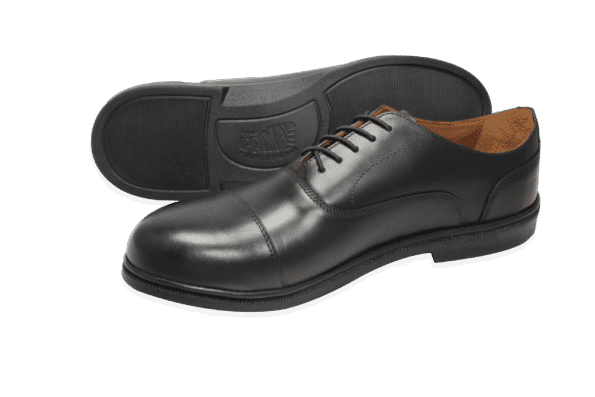

Do you guys remember the Primal Professional, the barefoot dress shoe startup we posted about when they were first launching on Indiegogo in 2011? They’ve since rebranded to Carets (what does “Carets” mean?), and upgraded their shoes over 4 iterations. They also have a beautiful rich oxblood color now.
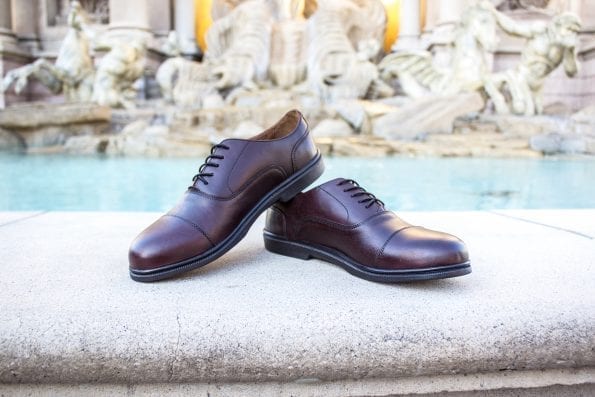

They’ve provided us with a pair, and a side-by-side comparison of Caret’s older versions with the new version 4! To keep it simple, the previous v3.2 will always be on the left, and the new v4 will always be on the right.
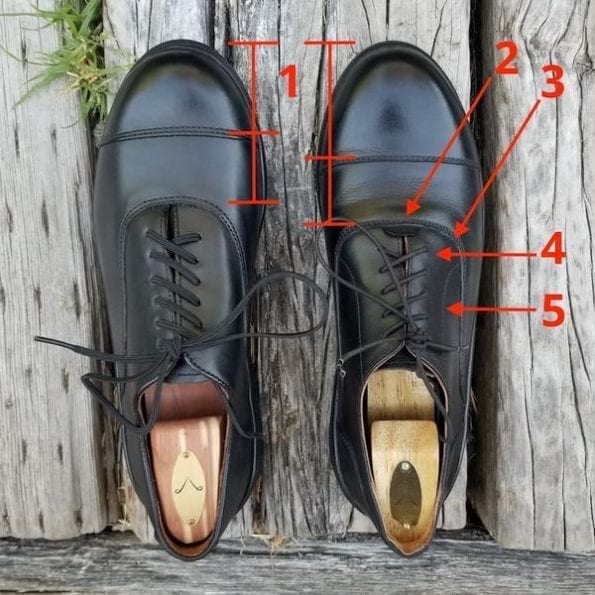

#1 Proportion of Cap : Vamp : Quarter
The first thing you probably noticed is the change in the cap to vamp to quarter proportions.
#2 Flap
This area in Oxford shoes tends to have a gap between the 2 quarters. It’s usually solved with either stitching or a flap like this. I think this flap would be the more durable out of the 2.
#3 Sharper Lines & Angles
In combination with the longer cap, these sharper lines and angles make the redesign look more masculine.
#4 From 6 Eyelets to 5
I think they removed an eyelet for aesthetic reasons when they shortened the quarters. Functionally, having less lacing makes it easier to slip into the shoes with our elastic laces.
#5 New Stitch Line Detail
I’m not sure if there’s a function to this, but I’ve seen it on other dress shoes and it looks nice.
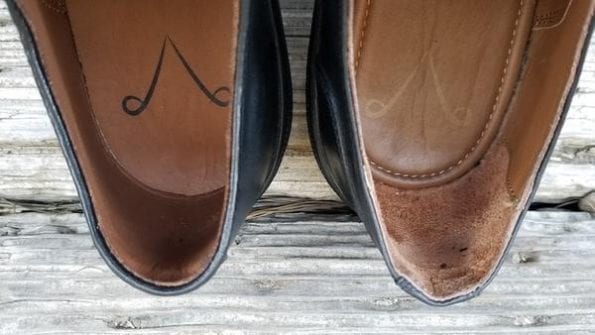

#6 More Finished Footbed
I think the stitching looks much better, and it also keeps the 3 components of the insole–leather, Poron, and cellulose board–together.
#7 Gold Heat Stamped Logo
Oh you fancy, huh?
#8 Suede-Lined Heel Counter
Suede has more friction than smooth leather. This should help prevent the back of the foot from slipping up.
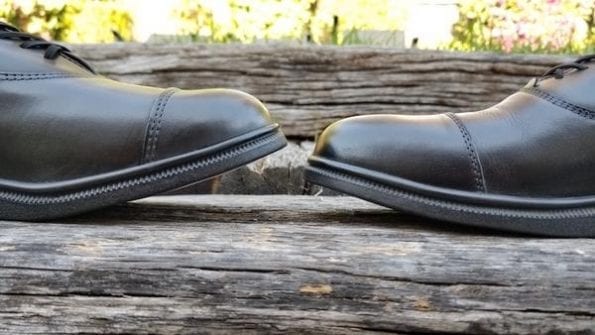

#9 Less Toe Spring
The toe upturn is called toe spring. It’s a useful feature if done right, as it helps you not kick the front of your shoes, especially on dress shoes where there’s extra length in the front. However, it was a bit too much on our versions prior to 4. It’s strange because our last (the plastic mold around which shoes are built) doesn’t have that much toe spring, but the shoes do.
I think the reason why these Mexico-made version 4 shoes have less toe spring has to do with the next point.
#10 Cork Filler Removed
With our USA-made shoes, there was a cork filler between the insole and the outsole. Our Mexican shoemaker asked, “Is this really necessary?” and the answer is no. With the cork filler removed, the shoes are lighter, softer, and more flexible right out the box, and I think it’s the reason why there’s less toe spring.
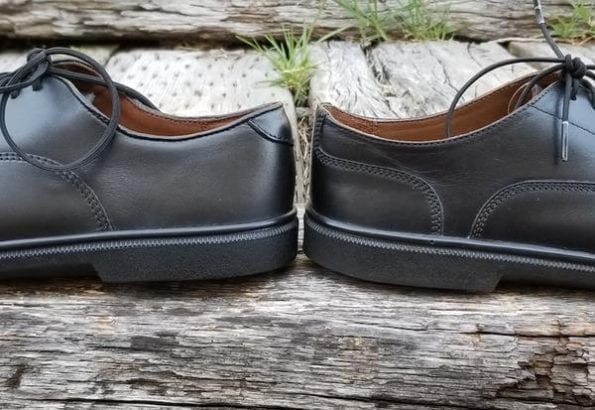

#11 Finer Topline
This part tended to bother some people’s ankles. It’s much finer in the redesign and as a result much softer.
#12 Lower Topline
As a further measure to spare people’s ankles, I had them strategically lower the topline.
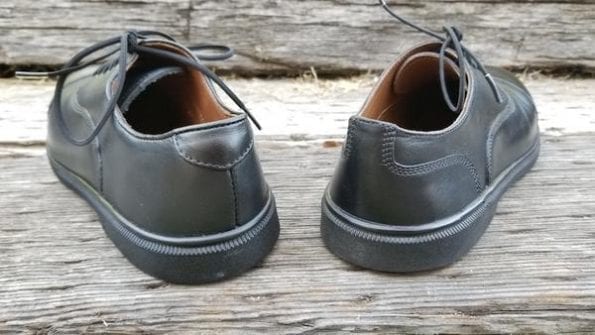

#13 New Heel Counter Design
Thanks to your feedback to our March newsletter, I redesigned our heel counter. This design is most often seen on wingtips, where extra panels allows for the shoe to showcase more of its intricate detailing. I saw it on an Oxford though, and I said Whoa.
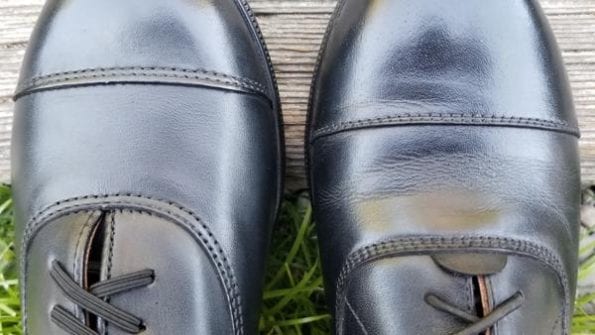

#14 Closer Stitching Rows
The stitching on our shoes got a lot tighter between v2 and v3, as we moved cut-and-sew from Wisconsin to the Dominican.
Between v3 and v4, the individual stitches appear to be the same size. However, the rows of stitching are closer in v4, and what a huge difference that makes in refinement. Everything’s better in Mexico!
#15 Round Elastic Laces
You may have noticed by now that v4 has round elastic laces, which look more traditional. The round laces glide through the eyelets more easily, which makes tightening and loosening them easier. I also expect the round elastic laces to be more durable (think of flat fabric vs rope).
